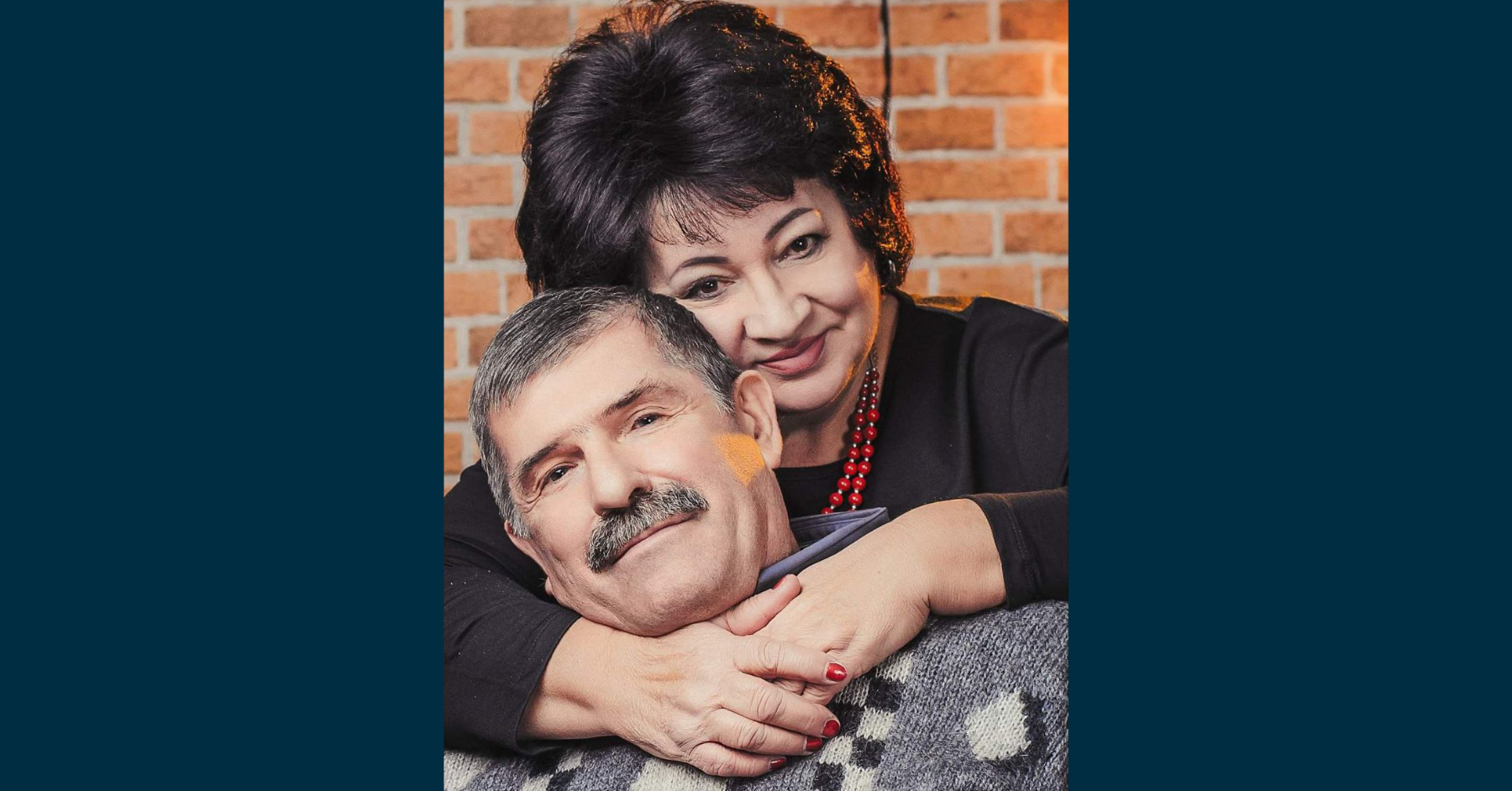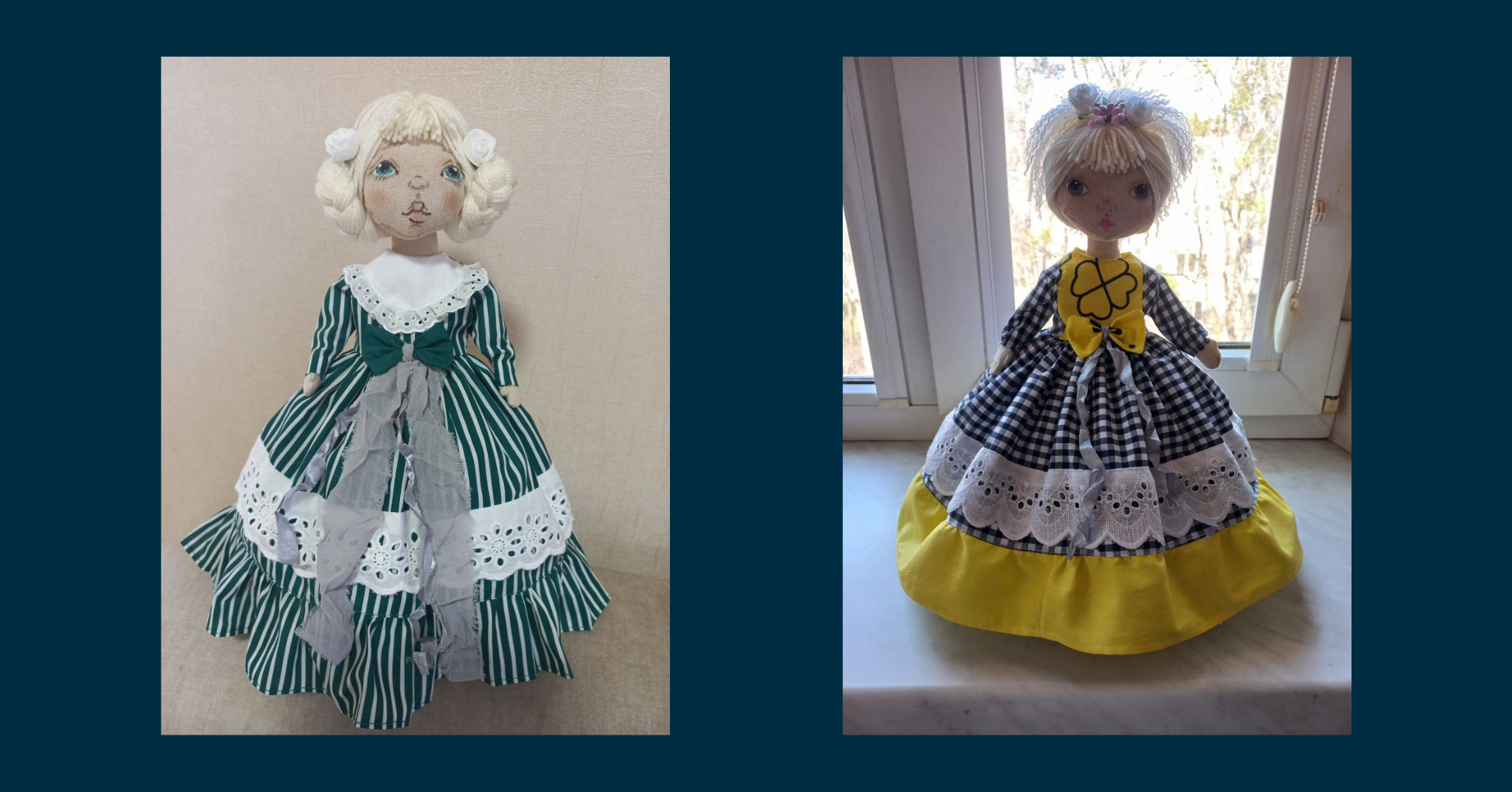Tamara Yetenko: “Sewing courses have recovered my mental health and will help me improve my financial situation”
Date:

Tamara Yetenko, 69, has already been displaced twice: in 2015, she fled Debaltseve, occupied by Russian troops, and in 2022, she was forced to flee from Russian shelling from the frontline city of Kramatorsk, Donetsk region. The destruction of her home, her husband's sudden stroke, and stress took a toll on her mental health. In her words, the sewing courses offered by the NGO “Pobratym Center”, implemented with the technical support of UN Women in Ukraine and funded by the UN Women's Peace and Humanitarian Fund (WPHF), helped her recover. In the future, she plans to sew dolls as gifts for her loved ones and sell them to anyone who wants to buy them.
After the full-scale invasion, due to the heavy shelling of Kramatorsk and the fear of an escalation of the military conflict, 69-year-old Tamara and her daughter arrived in Mukachevo by evacuation train. Still, housing there was too expensive, so they sought temporary shelter in another city. They chose Chernivtsi and have never regretted it because Tamara says the people here are amiable.
There, the woman joined a sewing course organized by the NGO “Pobratym Center” as part of the project “Three Support Points for IDP Women's Recovery” implemented with technical support from UN Women in Ukraine and funded by the UN Women's Peace and Humanitarian Fund (WPHF). This flexible and responsive funding instrument supports quality interventions to increase the capacity of local women to prevent conflict, respond to crises and emergencies, and seize key peacebuilding opportunities. Since 2016, WPHF has provided funding and capacity building to more than 1,000 local women's civil society organizations.
Tamara admits that these courses saved her mental health. When asked why she decided to attend the classes, the woman starts to cry: “We had a good life until Russia took it away. We had an apartment and a dacha in Debaltseve. When we moved to Kramatorsk, the whole family denied ourselves everything, but in 2021, we finally bought a house there. And in 2022, we were forced to leave it too.” The loss of her property had a significant impact on Tamara. But this is not her most significant grief, she admits.
Just before the invasion, her husband went to Debaltseve to install monuments on his parents' graves. Due to the outbreak of hostilities, he was unable to leave quickly and had a stroke on the temporarily occupied territory. Mrs. Tamara made a lot of effort to get her husband out. And she did it!
“I was going down the street of the occupied city when I came to pick up my husband. There were enemy planes overhead and hundreds of Russian soldiers on the road. I walked and was afraid to look up so they wouldn't realize how much I hated them,” the woman says with tears. And when she and her husband were returning to the territory controlled by Ukraine, they came under enemy fire in the “green corridor” in Sumy region. All this had a significantly negative impact on the woman's emotional well-being.
“I didn't sleep at night. I thought I was going crazy, but I was thrilled when I heard about an opportunity to take such courses. I love to sew and was fond of making textile dolls. But because of the war, I hadn't picked up a needle in over a year and a half. And now I am sewing again. You are doing a great job!” says Tamara.
For now, Tamara sews dolls as gifts for her family, but soon, she plans to sell them to earn extra money and feel that her hobby makes people feel good.

At the moment, the faces of the textile dolls are sorrowful. But Tamara believes that everything will change. “I believe that Ukraine will win, and we will all return home. And then my dolls will be smiling again!” she says.